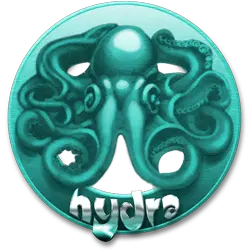
Dr. Fredric Wertham: The Man Who Fought Comics
Dr. Fredric Wertham was one of the most controversial figures in comic book history. He believed that comics were dangerous for children and that they caused violence, crime, and bad behavior. His ideas led to big changes in the comic book industry, and his impact is still discussed today.
Who Was Dr. Fredric Wertham?
Fredric Wertham was a psychiatrist born in 1895 in Germany. He moved to the United States in 1922 and became a respected doctor. He worked in mental health and often studied how media affected young people.
At first, Wertham focused on serious issues like racism and violence. He believed that society needed to protect children from harmful influences. Over time, he became convinced that comic books were one of the biggest dangers to young minds.
Why Did He Hate Comics?
In the 1940s and 1950s, comic books were extremely popular. Kids loved superheroes, horror stories, crime tales, and science fiction adventures. But Wertham believed that comics were filling children’s minds with violent and disturbing images.
He studied young criminals and noticed that many of them read comic books. He thought this meant comics were influencing kids to break the law. He also believed that superheroes like Batman and Wonder Woman promoted unhealthy ideas about gender and relationships.
Wertham strongly opposed horror and crime comics, which showed murder, monsters, and criminals. He argued that these comics encouraged violence, disrespect for authority, and even drug use.
Seduction of the Innocent
In 1954, Wertham wrote a book called Seduction of the Innocent. In this book, he claimed that comic books were corrupting America’s youth. He used examples from real comics to show graphic violence, sexual content, and dark themes. Many parents and teachers became outraged after reading his book.
The book caught the attention of the U.S. Senate, and a major investigation into comics began. Wertham testified before Congress, warning about the dangers of comic books. His influence led to new rules that changed the comic book industry forever.
The Comics Code Authority

After Wertham’s campaign against comics, publishers faced pressure to clean up their content. In response, the Comics Code Authority (CCA) was created in 1954. This organization made strict rules about what could appear in comic books.
Under the CCA:
- Comics could not show graphic violence or gore.
- Stories had to promote law and order.
- Villains had to be punished for their crimes.
- Horror, crime, and supernatural themes were heavily censored.
Because of these rules, many publishers went out of business. Horror comics, like Tales from the Crypt, disappeared. Superhero comics survived, but they became much softer and kid-friendly.
Was Wertham Right?
Many people believed Wertham’s claims in the 1950s, but later studies questioned his research. In the 1970s and beyond, experts found that he misrepresented facts and ignored evidence that didn’t support his theories. Some of his claims about hidden messages in comics seemed ridiculous.
Modern researchers believe that comic books were not responsible for youth violence. Instead, they argue that poverty, family problems, and other factors played a bigger role. Today, many of the comics Wertham criticized are seen as classics.
His Legacy in Comics
Wertham’s campaign against comics had a huge impact on the industry. His work led to censorship that limited creativity for years. The CCA controlled comics for decades, and it wasn’t until the 2000s that it finally disappeared.
Even though his research had flaws, Wertham forced people to think about how media affects young minds. Today, parents and educators still discuss what content is appropriate for kids.
Wertham’s story serves as a reminder that fear and misinformation can shape history, sometimes in unexpected ways.
Dr. Fredric Wertham may have been wrong about comics, but his influence changed the industry forever. His actions led to years of censorship, debate, and change, and his name remains one of the most famous in comic book history.











